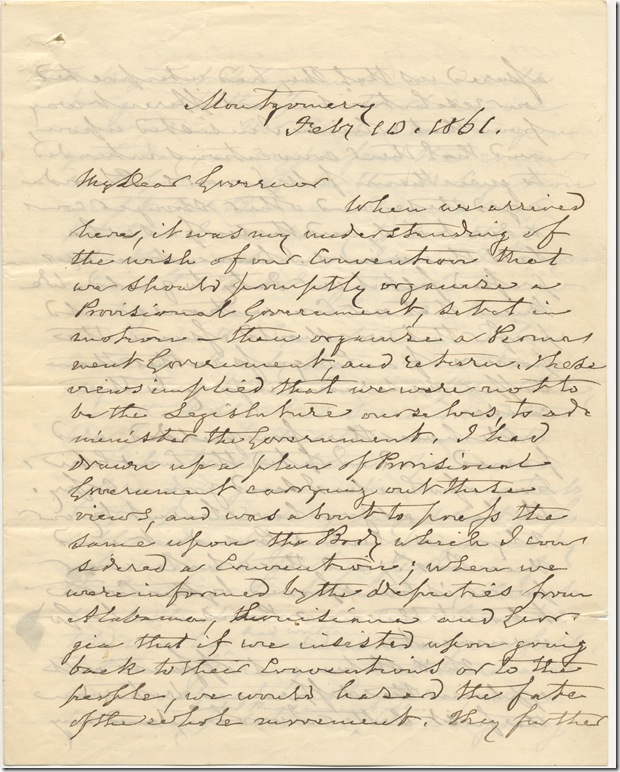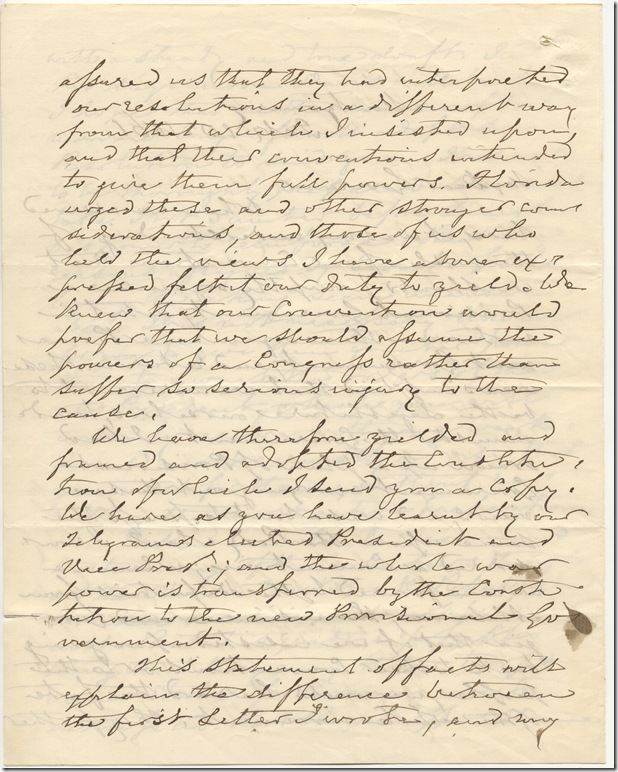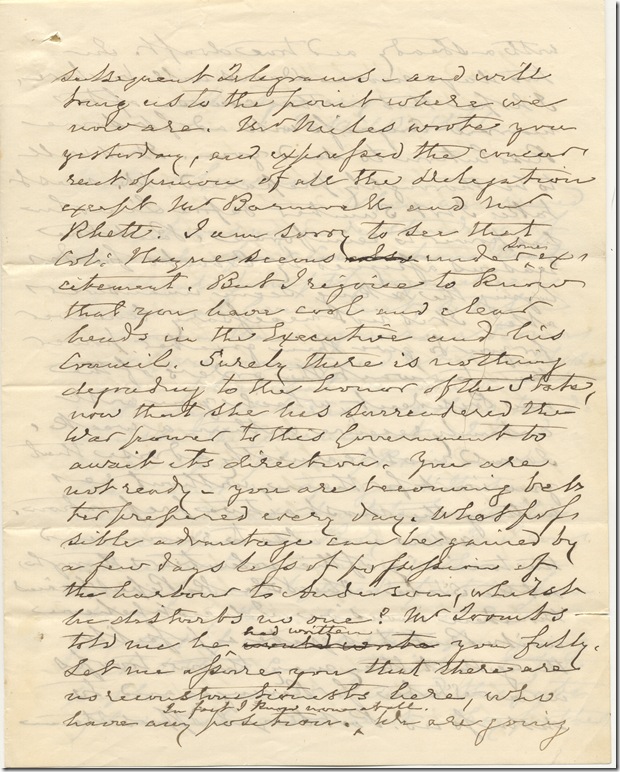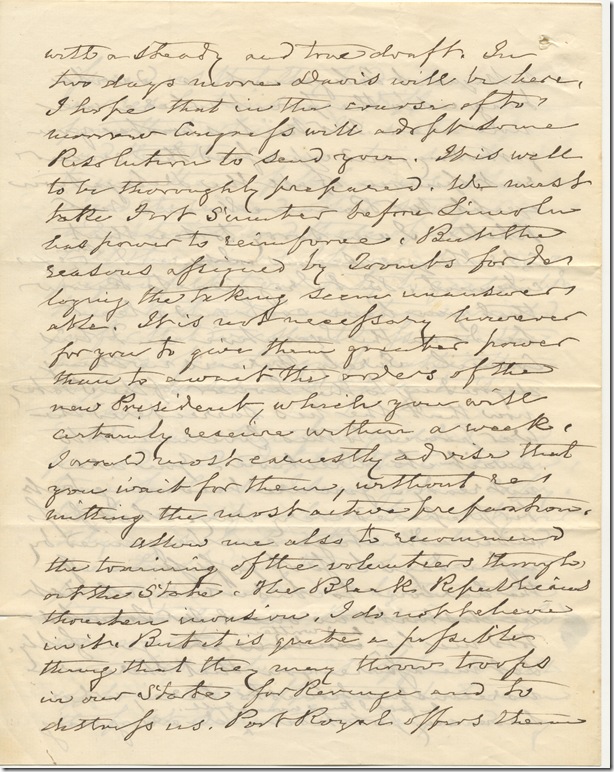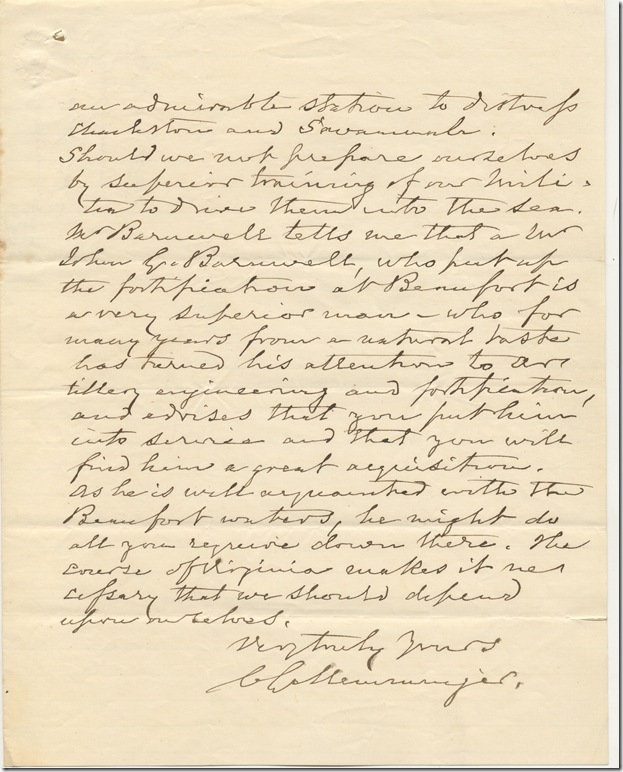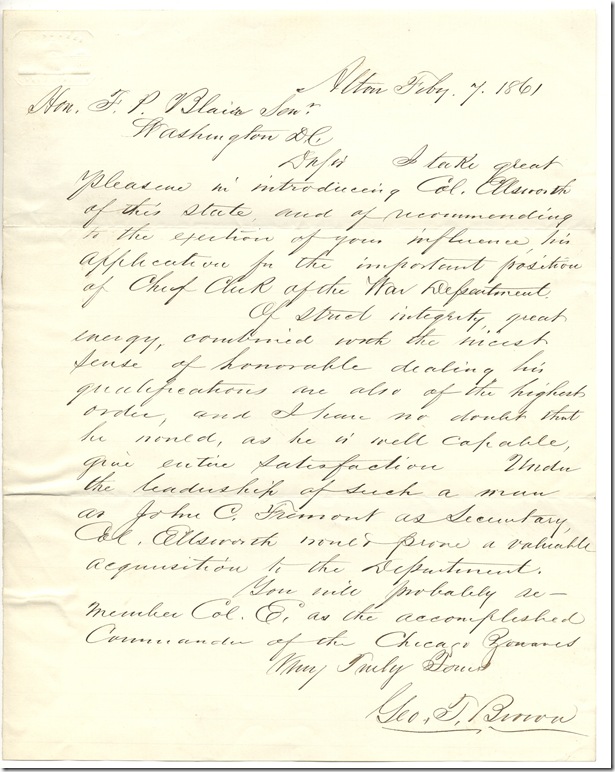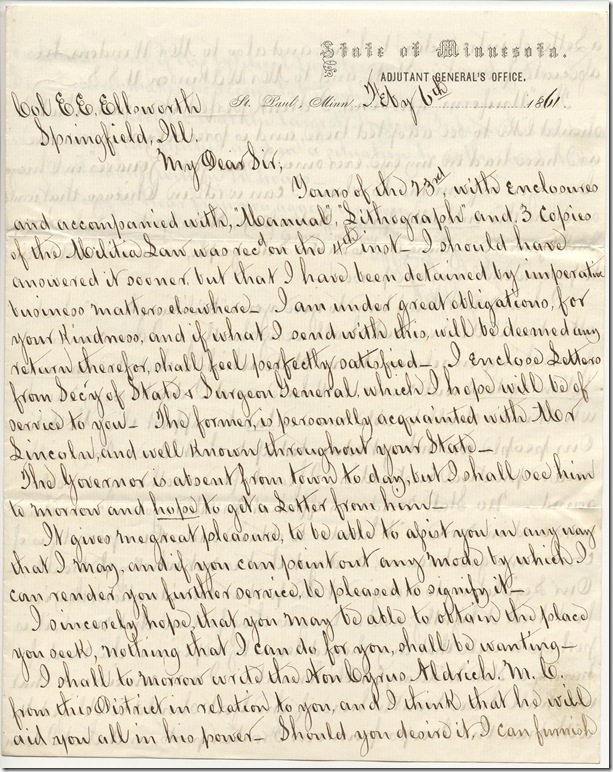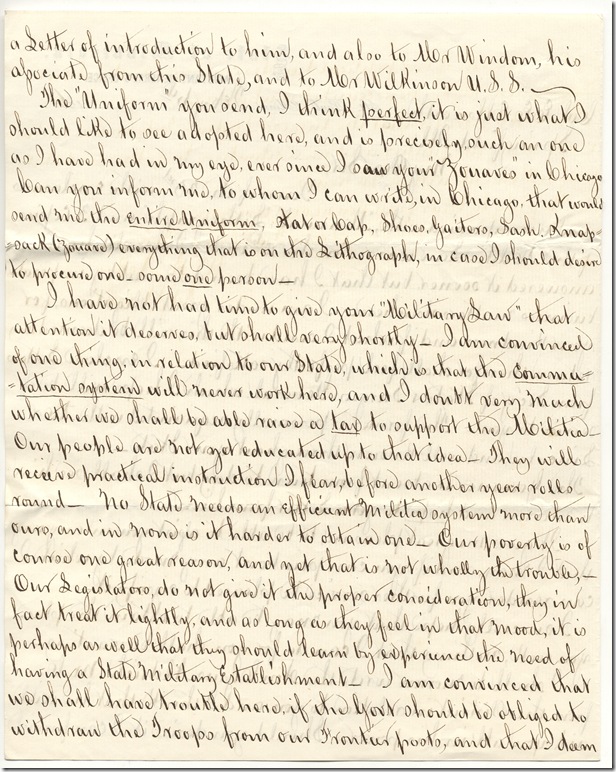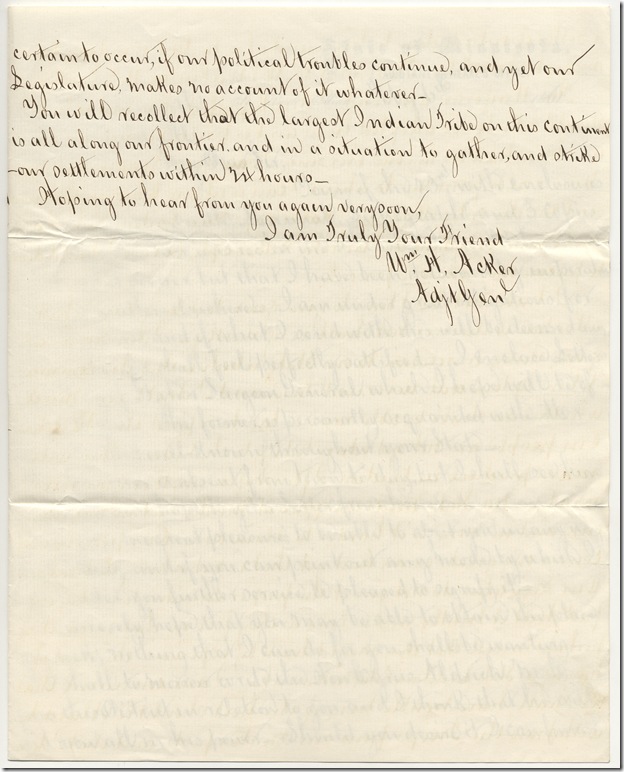C. G. Memminger was South Carolina’s deputy to the first meeting of the provisional Confederate Congress, which assembled in Montgomery, Alabama in February, 1861 to create a government.
Transcript [redacted]:
Montgomery
Feby 10, 1861
My Dear Governor,
When we arrived here, it was my understanding of the wish of our Convention that we should promptly organise a Provisional Government, set it in motion—then organise a Permanent Government, and return. These views implied that we were not to be the Legislature ourselves, to administer the Government. I had drawn up a plan of Provisional Government carrying out those views, and was about to press the same upon the Body which I considered a Convention; when we were informed by the deputies from Alabama, Louisiana and Georgia that if we insisted upon going back to their Conventions or to the people, we would hason the fate of the whole movement. They further assured us that they had interpreted our resolutions in a different way from that which I insisted upon, and that their Conventions intended to give them full powers. Florida urged these and other stronger considerations, and those of us who hold the views I have above expressed felt it our duty to yield. We knew that our Convention would prefer that we should assume the powers of a Congress rather than suffer so serious injury to the cause.
We have therefore yielded and framed and adopted the Constitution of which I send you a copy. We have as you have learnt by our Telegrams elected President Vice Pres.; and the whole war power is transferred by the Constitution to the new Provisional Government.
This statement of facts will explain the difference between the first Letter I wrote, and my subsequent Telegrams—and will bring us to the point where we now are. Mr Miles wrote you yesterday, and expressed the correct opinion of all the Delegation except Mr Barnwall and Mr Rhett. I am sorry to see that Col. Hazen seems under some excitement. But I rejoice to know that you have cool and clear heads in the Executive and his Council. Surely there is nothing degrading to the honour of the State, now that she has surrendered the War power to this Government to await its direction. You are not ready—you are becoming better prepared every day. What possible advantage can be gained by a few days less of possession of the harbour to Anderson, whilst he disturbs no one? Mr Toombs told me he had written you fully. Let me assure you that there are no reconstructionists here, who have any position. In fact I know none at all. We are going with a steady and true draft. In two days more Davis will be here, I hope that in the course of to-morrow Congress will address some Resolution to send you. It is well to be thoroughly prepared. We must take Fort Sumter before Lincoln has power to reinforce. […] It is not necessary however for you to give them greater power than to await the orders of the new President, which you will certainly receive within a week. I would most earnestly advise that you wait for them, without rewriting the most active preparations.
Allow me also to recommend the training of the volunteers throughout the State. The Black Republicans threaten invasion. I do not believe in it. But it is quite a possible thing that they may throw troops in our State for Revenge and so distress us. Port Royal offers them our admirable station to distress Charleston and Savannah. Should we not prepare ourselves by superior training of our Militia to drive them into the sea. Mr Barnwall tells me that a Mr John G Barnwall, who put up the fortifications at Beaufort is a very superior man—who for many years from a natural taste has turned his attention to artillery engineering and fortification, and advises that you put him into service and that you will find him a great acquisition. As his is well acquainted with the Beaufort waters, he might do all you require down there. The course of Virginia makes it necessary that we should depend upon ourselves.
Very truly yours
CG Memminger
Citation: C. G. (Christopher Gustavus) Memminger, autograph letter signed to F. W. Pickens. 10 February 1861. AMs 778/4
